CANCER CONNECTION






















There’s no doubt that a cancer diagnosis changes your life completely and immediately. It’s hard to know where to turn. Your family, friends, and medical team will suddenly become your most important allies and you’ll need them to navigate your way through the maze of doctor’s appointments, treatments, and hospital stays that may lie ahead.
Be sure to keep all of your appointments, communicate with your doctor, and research resources available through your hospital, clinic, physician’s office, and local cancer support agencies. They can provide important information on:
• Emotional support
• Adjusting to life with cancer
• Nutritional care
• Managing anxiety/depression
• Patient navigation services
• Clinical trial participation
• Financial & insurance matters
• Dealing with hair loss
• Caregiver advice
• Logistics (lodging/ transportation)
• American Cancer Society (cancer.org)
• Hematology/Oncology Clinic (hocbr.com)
• Our Lady of the Lake Cancer Institute (OLOLRMC.com)
• Baton Rouge General Pennington Cancer Center (brgeneral.org)
• Cancer Services of Greater Baton Rouge (cancerservices.org)
• Louisiana Cancer Prevention & Control Programs (louisianacancer.org)
• Mary Bird Cancer Center (marybird.org)
• Ochsner Health System (ochsner.org)
• Pennington Biomedical Research Center (pbrc.edu)
• Woman’s Cancer Pavilion (womans.org)
A cancer diagnosis can be devastating, but you’re not alone. According to Cancer Services, thousands of people (of all ages) in the Greater Baton Rouge area are diagnosed with cancer each year, and that diagnosis affects their friends and families. This is especially true for families with a child diagnosed with cancer.
FIRST STEP : Talk with your physician or hospital about patient navigator services, which will help you stay focused on the best path for you and your family. And check into local support groups. Connecting with others will reduce your anxiety, improve your coping skills, and offer a safe space to share your experiences and concerns.

Baton Rouge General’s Pennington Cancer Center and Mary Bird Perkins Cancer Center are working together to o er more resources and specialists in the fight against cancer. We have a collaborative approach to care, enhanced treatment options and the strength of two leading institutions with one goal in mind: making the best choices for you.
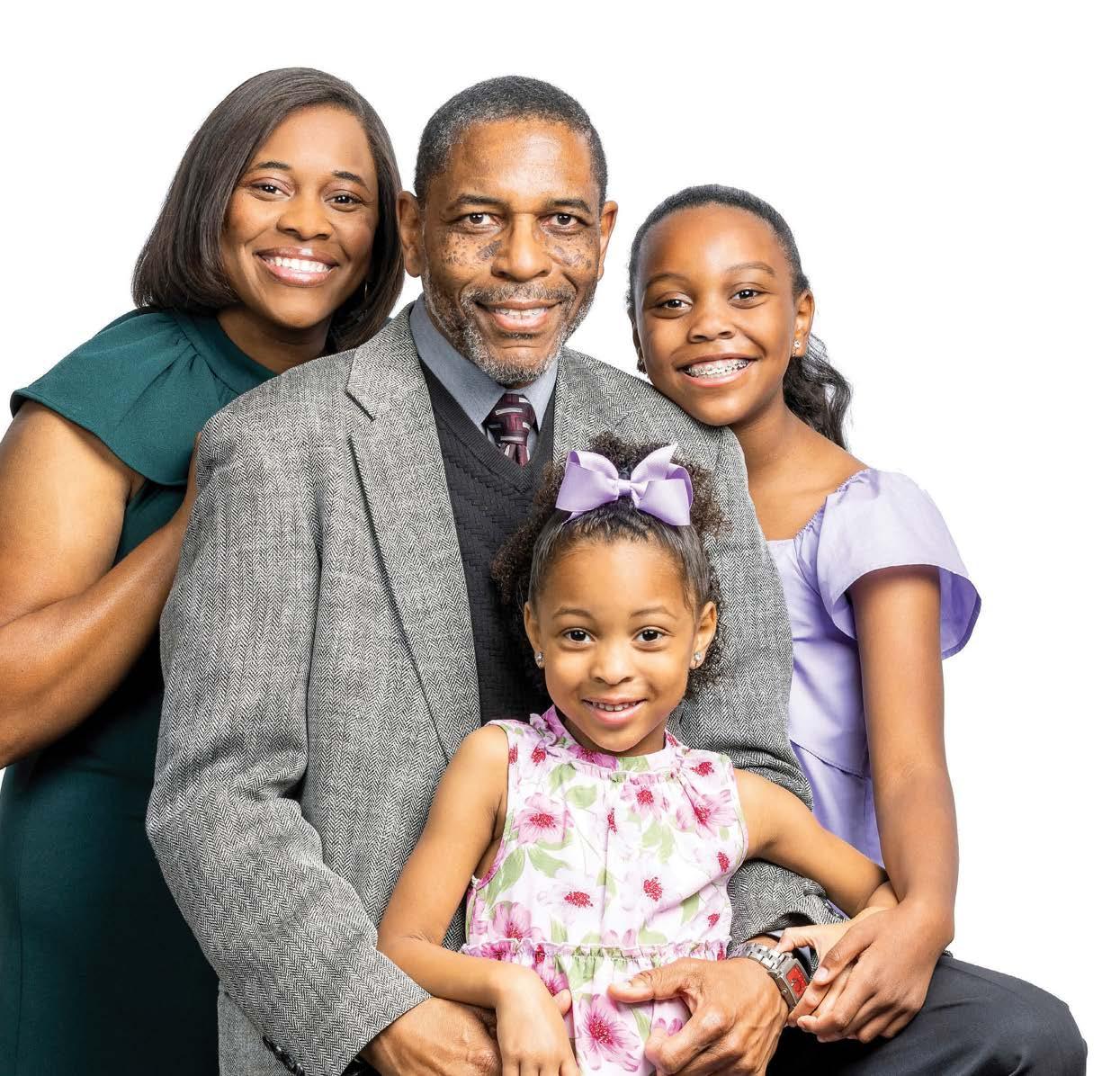
 To learn about John’s story
To learn about John’s story
No longer do cancer patients need to leave the state for advanced and potentially groundbreaking cancer treatments. Thanks to the implementation of new clinical trials, advanced robotic technologies and holistic approaches to treatment, cancer can be cured right here at home.

Case in point, Mary Bird Perkins Cancer Center just launched its Phase 1 Clinical Trials. It’s the cancer center’s first foray into the Phase 1 space, whereby they can administer medications that have had limited to no prior use by humans. In the process, they’re ensuring that the medications are safe, while also giving patients hope. “We have two Phase 1 trials open, and a third is beginning—all different drugs treating different diseases,” says Dr. Victor Lin, who leads the Cancer Center’s clinical research program. “The medications are typically provided to the patient free of charge.” Later trial phases test for a drug’s effectiveness and collect data for FDA approval.
As part of their recent partnership, Baton Rouge General’s Pennington Cancer Center and Mary Bird Perkins Cancer Center have launched a Multidisciplinary Breast Care Clinic. An entire team of specialists – medical oncologists, radiation oncology, surgeons, nutritionists etc.—now attend a patient’s initial consultation to discuss their entire treatment and recovery journey. Having them in one place at one appointment means the patient leaves that day with a plan, and treatments start sooner.
Woman’s Hospital Breast Cancer Treatment Center is enhancing its “Survivorship & Support” program. They now perform audiology screenings before, during and after audio-toxic chemotherapies. In the process, they document changes in hearing caused by certain chemotherapy regimens. Chemo can also cause postural and balance problems, so they measure a patient’s balance before and after chemo, then create a fall prevention program for impacted patients.
(See NEW TREATMENTS on next page)

Participating in a clinical trial is a way to help support medical research today and in the future. Such programs are vital in guiding scientists as they research new ways to diagnose, detect and treat diseases and medical conditions. Some are designed to test new drugs or devices, while others focus on procedures and treatment methods. Pennington Biomedical Research Center is just one center that conducts many types of clinical trials, including several for cancer. Go to pbrc.edu/ clinicaltrials for details.
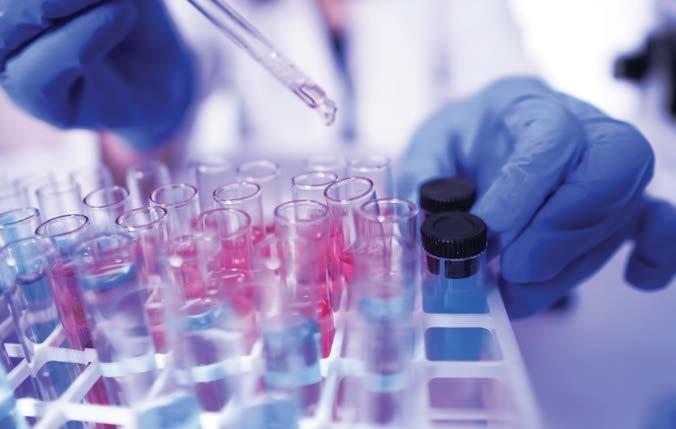



The Hematology Oncology Clinic is personalizing treatment while transforming the standard of care by advancing today’s clinical trials into tomorrow’s treatments. Their goal is to give patients the opportunity to participate in approved and exploratory therapies without longdistance travel.
With more than 20,000 square feet, Ochsner Cancer Center’s newly renovated building in Baton Rouge offers 15 personalized and semi-private chemo infusion stations. It’s one of the only cancer programs in the area to offer a hematology and oncology outpatient health center with both chemotherapy infusion and radiation
oncology services on one floor. Additionally, their partnership with The University of Texas MD Anderson Cancer Center gives cancer patients access to treatments that are among the most advanced in the nation.



And at Our Lady of the Lake Cancer Institute, tumors are being diagnosed and removed when they’re less than a centimeter in size, providing patients with greater long-term survival outcomes. “We have a robotic bronchoscopy system that helps diagnose lung nodules when they are more treatable,” says Dr. Emily Cassidy, a thoracic surgeon at OLOL. “We can then remove them robotically, and recovery is much improved. Lung cancer is no longer the death sentence that it once was.”
No one wants to hear the words…”You have cancer.” If it happens though, the Cancer Center specialists at Lake Charles Memorial Hospital are with you every step of the journey.
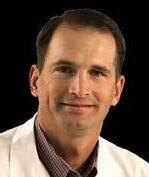


Commuting to a big city for ongoing treatments can now be a thing of the past. Memorial provides cutting edge cancer treatments, exactly as your oncologist prescribes—right here and close to home.
You and your quality of life are important to us.



At Hematology Oncology Clinic, we’re making great strides toward closing the cancer care gap by ensuring every patient has access to the care needed to help fight their cancer.
With an expanding practice of more than 10 providers serving patients in three clinics in Alexandria, Baton Rouge and Zachary, we’re not only in big cities, we’re in suburban rural areas where medical resources are scarce.

And we make the care more personal, as we understand that every cancer is unique and deserves a tailored treatment plan.
$17 million in free medications and financial assistance for our patients

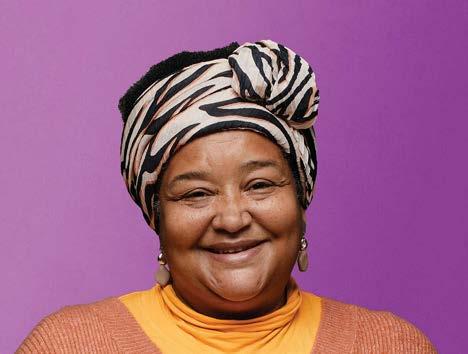
We’re increasing access to care for hundreds of patients by responsibly controlling cancer costs.
We are here and ready to join your fight against cancer.
As a patient, you’ll have access to local cancer care and be considered for over 43 clinical trials depending on your cancer type.
As you age, your risk for some types of cancer increases, so be aware—of your body, of your family history, and of cancer symptoms in general. It might be a lump in your breast, a persistent cough, a change in your vision, or a recurring headache. Symptoms like these can be attributed to many things, but they could also be red flags. Examine your body regularly, know your family’s medical history, and talk to your physician about specific cancer screenings and when you should get them.
• SKIN CANCER : Everyone should see a dermatologist annually to check for moles or unusual spots on your skin and scalp.

• CERVICAL CANCER : Women should start screening for cervical cancer at about age 25, and should have a pap test every 3 to 5 years.
• LUNG CANCER : Smokers and former smokers should talk to their doctor about a CT scan for lung cancer.
• COLORECTAL CANCER : Everyone should get a colonoscopy to screen for colorectal cancer beginning at age 45.
• PROSTATE CANCER : Men should talk to their doctor at age 50 about whether to get tested for prostate cancer.

Issue Date: SEP 2023 Ad 2 proof #3 •
• BREAST CANCER : Doctors vary in their recommendations for when you should start getting mammograms. By age 40, you should have this discussion with your doctor and follow his/her advice.
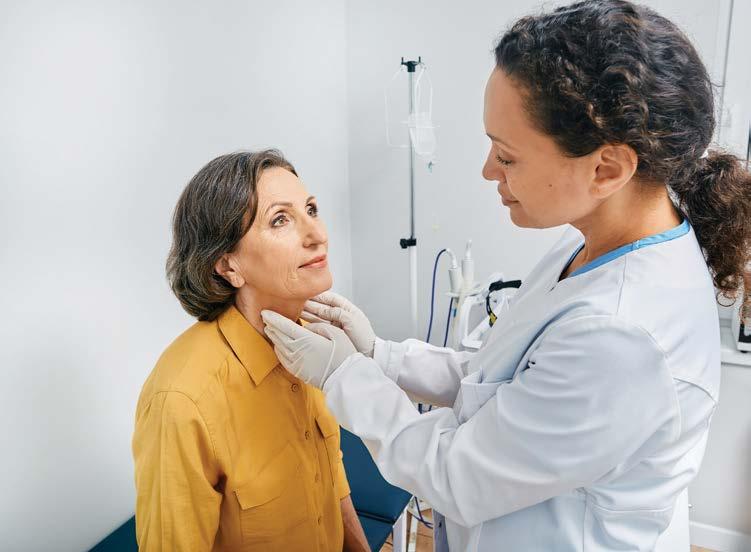
Note: Screening recommendations may change if you have a family history of cancer. Be sure to talk to your doctor.
Helping employers and providers navigate the complexities of occupational illnesses so that our heroes have access to the best care our state has to o er.


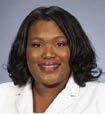

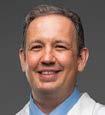



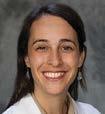

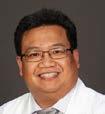
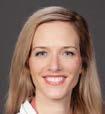


There is no guaranteed way to avoid a cancer diagnosis, but studies show that certain lifestyle choices can greatly reduce your risk of many types of cancer. Here are just a few:

1
According to the American Cancer Society, eating at least 2.5 cups of vegetables and fruits per day and decreasing the amount of processed meats you eat can reduce your risk for cancer.
4
2
The American Cancer Society recommends 150 minutes of moderate-intensity activity for adults each week. That’s just over 20 minutes a day. Find ways to be active whether it’s walking, biking, kayaking or working out at the gym.

It’s time to quit. Smoking is a proven co-morbidity for many diseases, not just cancer. Once you kick the habit, your body starts recovering from smoking within just minutes and your risk for a number of cancers is halved in just five years. If someone close to you smokes, encourage them to quit … just being around others who use tobacco products can place you at risk for lung cancer.
3
Drinking alcohol raises your risk for breast, throat, liver, colorectal and other cancers. Drinking in moderation—a maximum of one drink a day for women and two for men—lowers your risk for cancer.
5
Ultraviolet rays cause skin damage and can lead to skin cancer. Wear at least SPF 30 sunscreen, sunprotective clothing, hats, and sunglasses whenever you are outdoors in the sun.

6
When you have your annual physical, talk to your doctor about which cancer screenings you need to stay healthy and reduce your risk of cancer.
Ochsner Health and MD Anderson Cancer Center have clinically integrated to provide advanced cancer care, right here in Louisiana. That means access to life-saving clinical trials for innovative therapies, more specialists and more resources for our patients. Through this collaboration, Ochsner is the first and only provider in Louisiana with a fully integrated cancer program based on MD Anderson’s standards and treatment plans. Learn more at ochsner.org/EndCancer
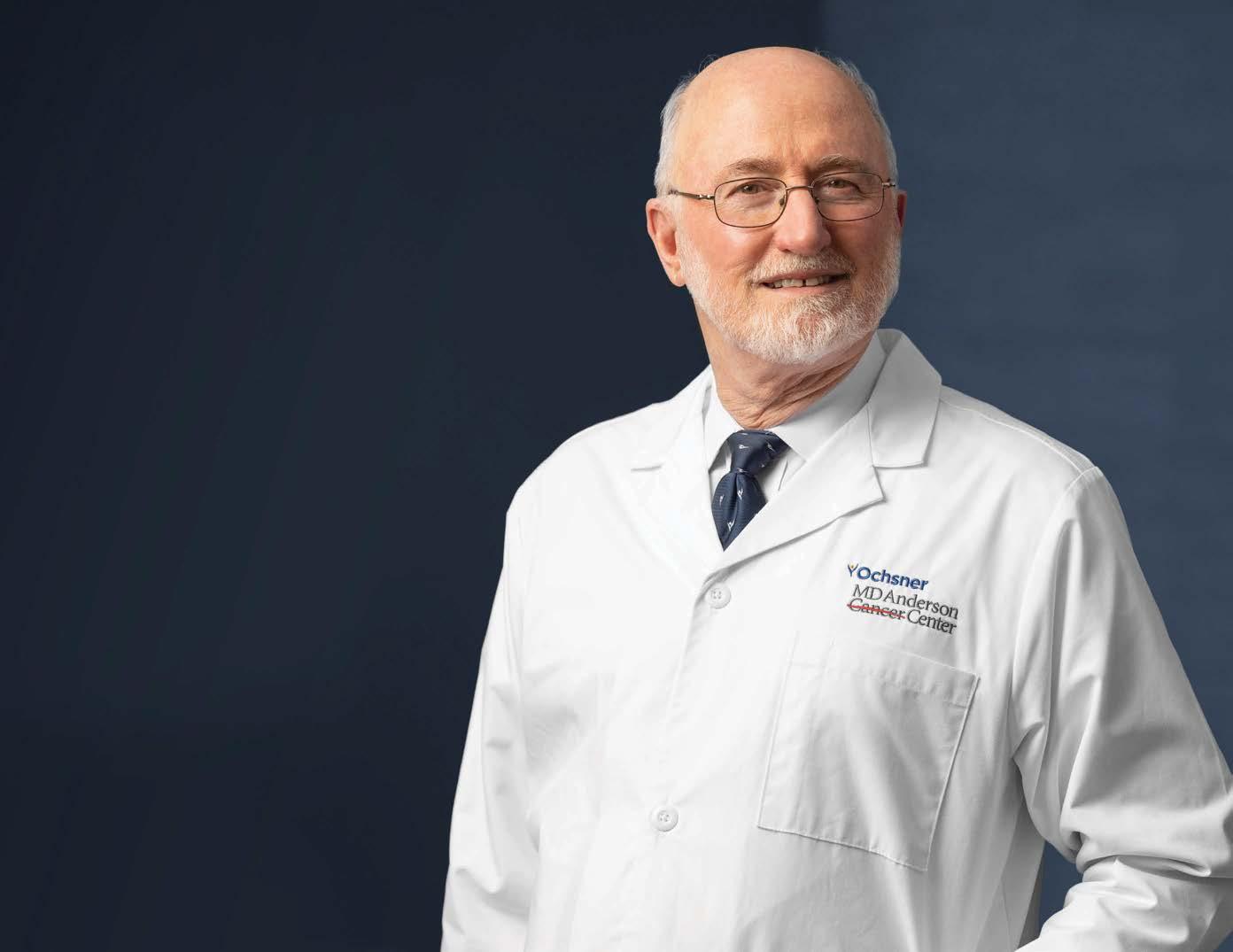
It’s difficult to watch a loved one battle cancer. Friends, family, neighbors, and co-workers want to show their support, but probably have no idea how to go about it. Here are some first steps.

• COMMUNICATE : Be open and honest. Rather that forced cheerfulness, say, “I’m so sorry this is happening. Please tell me how I can help.” Some patients want to talk about their cancer and others don’t. Ask, “Do you want to talk about it?” and then listen. Don’t stop communicating. If faceto-face visits are uncomfortable, stay in touch by phone.
• JUST BE THERE : You may find that your friend or family member is fretting over what you consider “little things” — practical, everyday routines and responsibilities they can no longer carry out. This is your opportunity to just “be there” in small ways that will make a big difference.
• Offer to carpool for their school-age children or babysit occasionally.
• Shop for groceries or pick up dinner for their family once or twice a week.
• Run errands for them when you do your own.
• Help with household chores.
• Take them to a doctor’s appointment and offer to pick up their prescriptions when you can.
• Encourage other friends to find similar ways to help.
VOLUNTEER : Check with your local hospital or cancer program about volunteer opportunities. This could include helping out with special programs or events, or spending time with patients.
DONATE: Financial gifts are just one way to donate, either to a specific cancer program, a hospital, or a cancer organization. But you can donate your time and energy as well. Sign up for fundraising events, including runs, health walks, and special programs.
SUPPORT MEDICAL RESEARCH : Browse the websites of your local hospitals for opportunities to participate in clinical trials related to cancer treatment.
At Our Lady of the Lake Cancer Institute, treating cancer goes beyond just treating cancer. It also means treating everything that comes with cancer, including the complications and side e ects. Cancer takes everything. We’ll stop at nothing to care for you. Which is why we’ve been the region’s leading cancer treatment destination for decades. And we won’t stop there.

Many of us know we should conduct a breast selfexam every month, get a colonoscopy when we turn 45 or go see our dermatologist when one of our moles starts looking a little funny, but what do we know about taking care of our reproductive organs? After the child-bearing years are over, do we still have any need for our gynecologist?
September is Gyn Cancer awareness month, and we want you to know about the symptoms or screening steps for gynecologic cancers: cancers of the uterus, cervix, fallopian tubes, ovaries, vagina and vulva. Learn more about these cancers that originate in the female reproductive organs from Dr. Renee Cowan, who along with a whole team of various physicians and providers, specializes in GYN oncology at Woman’s Hospital.
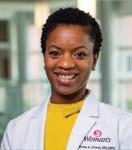
Uterine cancer is the most common GYN cancer and is ranked No. 4 in new cancer cases in women per year and No. 6 for cancer deaths in women. The cancer can a ect the uterus lining, called the endometrium, or the outer smooth muscle tissue called the myometrium. The most common and earliest symptom or red flag is often abnormal vaginal bleeding.
While it remains the most common gynecologic cancer in the world, nationwide, cervical cancer rates have been declining with the advent of pap smears and the HPV vaccine. Louisiana, however, is ranked in the top 10 for states with new cervical cancer cases. This cancer is usually caused by the HPV virus, which integrates into the DNA of the cells in the cervix and starts to make them abnormal until they become increasingly more abnormal and become cancerous. A pap smear can
detect those abnormal cells, and they can be removed by your gynecologist before cancer develops.
Your vagina and vulva can also develop cancer in a similar way, where the cells become increasingly more abnormal and eventually progress to cancer. Cowan encourages women to look at those parts of the body in the same way that they examine the rest of their skin. Any bump or discolored area is reason to see a doctor. Rates of vulvar dysplasia, or changes in the skin that covers the vulva, have increased by 40 percent in the last decade.
Ovarian cancer is not as common in south Louisiana, but it can be the most deadly. It’s the fifth most common cancer killer for women, and it also has the most silent symptoms, including weight loss or weight gain, bloating, constipation or diarrhea.

Women should see their gynecologist yearly, regardless of whether they are done having children, had a partial or full hysterectomy or entered menopause. Through a pelvic exam, a
gynecologist can pick up on subtle changes in the female reproductive organs and save your life.
Abnormal bleeding is always a reason to schedule an appointment, whether it’s heavy bleeding when you are of reproductive age or bleeding after menopause. Menopause means you have not bled in 12 months, so if you start bleeding again, go and see a doctor whether it’s a little spotting or a heavy flow.
Obesity is one of the top risk factors for some of these types of cancers because the extra fat cells in our bodies make estrogen, which disrupts normal hormone levels and can lead to the growth and development of cancer cells, specifically in the uterus. Women who haven’t had children are also at a higher risk. A pregnancy that goes to term is associated with a reduced risk of developing ovarian and endometrial cancers.
Dr. Cowan says her message about prevention is always to eat more fruits and vegetables and get more exercise. While healthy people do get cancer, unhealthy people get a lot more cancer and it becomes increasingly more di cult to treat. “Typically, women who are healthier can handle treatment like champs and just cruise through it and be sitting on the other side of a cure,” she says.
If you have any concern about your health or certain symptoms you may be feeling, please reach out to your primary care provider or your gynecologist. If you are diagnosed with a gynecologic cancer, it is important to be treated by a gynecologic oncologist, a physician who has specialized and been trained to treat cancers of the female reproductive organs.
For more information about gynecologic cancers or to find a doctor, visit womans.org.